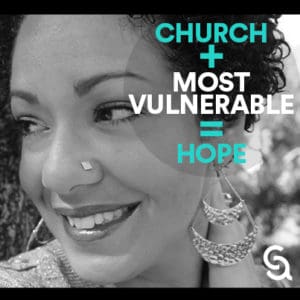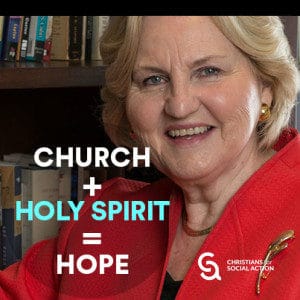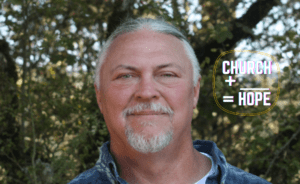 When I look at the church, what gives me hope?
When I look at the church, what gives me hope?
I’m sitting on a double-decker, red-eye Megabus, Nashville bound, nonstop from Chicago. My friend bought me a ticket so I can join her at a retreat she created for Christian women ministering in various capacities. She said the Lord told her I should be there. Good enough for me.
The bus departs at midnight. At first there’s a lot of chatter, and then laughter over one woman’s giant church hat, which she’d carefully wrapped in a white garbage bag and placed on top of the hefty pile of carry-ons.
After a little while, gospel music fills the lowest cabin while sleep descends. All night, the sounds of God’s truth and human longing pour into my weary brain. He is a shelter. He is a shelter.
The bus patrons are made up entirely of African Americans. Eventually we talk about the atrocities in Ferguson, Mo. “Lord Jesus,” someone says. “Father God,” says another.
What gives me hope about the church? That it persists in days like these amongst the most hated and vulnerable of the country in which I live. That the deep cries for the Father God to heal and restore all things to shalom scream out from the rocks all night long in a two-story Nashville-bound Megabus.
God’s church will not be hidden from the least of these. That’s what gives me hope.
Grace Biskie writes and serves as a community activist, speaker and advocate. She’s the author of two Converge Bible Studies from Abingdon Press: Kingdom Building and Cries of the Poor, and is working on a full-length memoir called Detroit’s Daughter.


